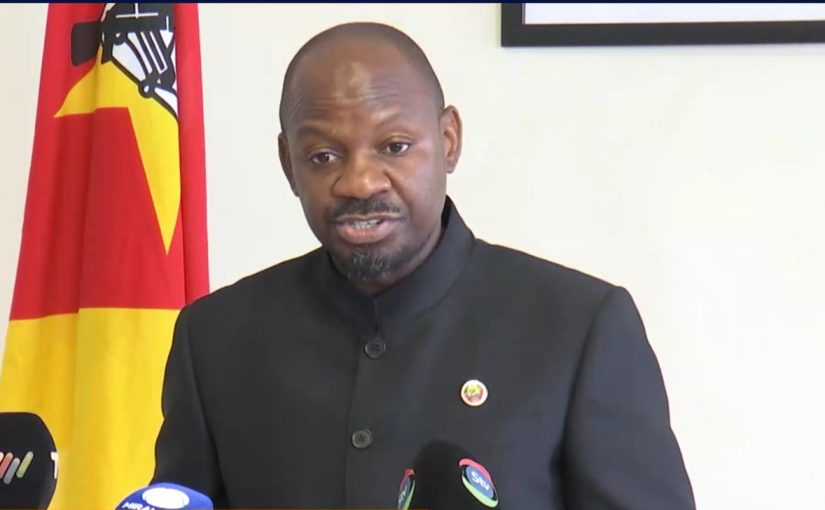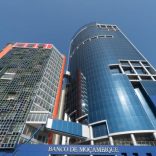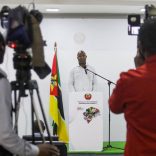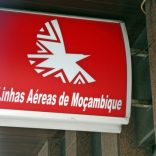Mozambique Ports and Railways's profits drop 13% in 2024
Mozambique: Lack of fuel due to bank guarantee problems for resellers- government

Photo: O País
Mozambique’s government said on Friday that fuel reserves are “assured” and that the lack of product in various parts of the country is due to problems with distributors’ bank guarantees.
“We have fuel available in Mozambique. The only thing missing is the fuel to reach the citizens, but for that, there is an intermediary, which is the suppliers,” said government spokesman Inocêncio Impissa in his weekly statements to journalists in Maputo.
Across the country, including in the capital, there have been fuel supply difficulties for several days, with some petrol stations facing huge queues and others running out of petrol or diesel.
The government spokesman said that the fuel situation in Mozambique “has shown stability”, with a “regular supply of the product available on the market, particularly in the country’s warehouses”.
“[There is] continuous and punctual unloading of fuel imports, which has helped to avoid major supply disruptions. We have had sufficient unloading, maintaining the constant flow of incoming oil products through its ports and unloading terminals,” Impissa explained, saying that this “has ensured that fuel reserves are maintained at adequate levels to meet demand.
For this reason, he said, the “apparent fuel shortage at petrol stations” should not be attributed to a lack of product, because “it is more related to logistical and administrative issues involving the distributors and their banks”.
The spokesman recognised that “one of the crucial factors for the release of product from customs warehouses is the issuing of bank guarantees by the distributors”, which are “necessary for the distributors to be able to take the fuel out of the warehouses and distribute it along the supply chain”.
“Therefore, the issue is not the lack of fuel in the country, but the logistics involved in moving the product from the customs warehouses to the petrol stations. This shows that the solution to the situation involves efficient management of the bank guarantees by the distributors and improved communication and coordination between the parties involved, both distributors, banks and customs authorities,” he said, adding that the government “will continue to monitor and follow up on the situation”.
On the other hand, he emphasised that the business of selling fuel is a transaction “between private parties” and that “the government’s role is, firstly, to facilitate and ensure that there is fuel available at the terminals in Mozambique”, a relationship “in which the state should be involved as little as possible”.
The central bank is also adopting measures to increase the availability of foreign currency. The country is facing limitations that are constraining supply chains and fuel.
In information Lusa had access to, the Bank of Mozambique said it had approved “normative instruments” at the beginning of April to “provide greater flexibility in the management of foreign currency by intermediary banks, given the current socio-economic situation”.
One of the notices approved “increases, from the current 30% to 50%, the conversion rate resulting from export earnings from goods, services and investment income abroad”, a regime that “will be in force for 18 months”.
Another of the notices involves the “regime for the repatriation and conversion of income from the re-export of oil products”, in which banks “will now fully convert income from the re-export of oil products”.
In addition, it approved a notice that establishes an “exceptional regime” in the percentages “of minimum regulatory provisions on overdue credit, to be in force for 12 months, to promote the “expansion of banks” capacity to grant credit”.












Leave a Reply
Be the First to Comment!
You must be logged in to post a comment.
You must be logged in to post a comment.